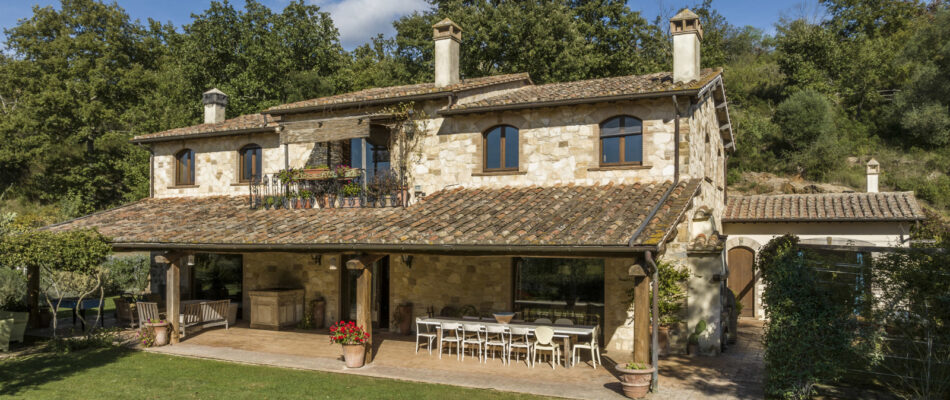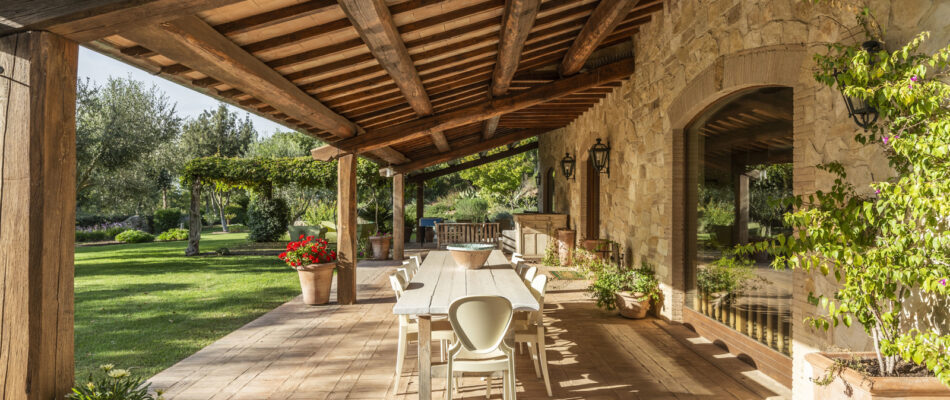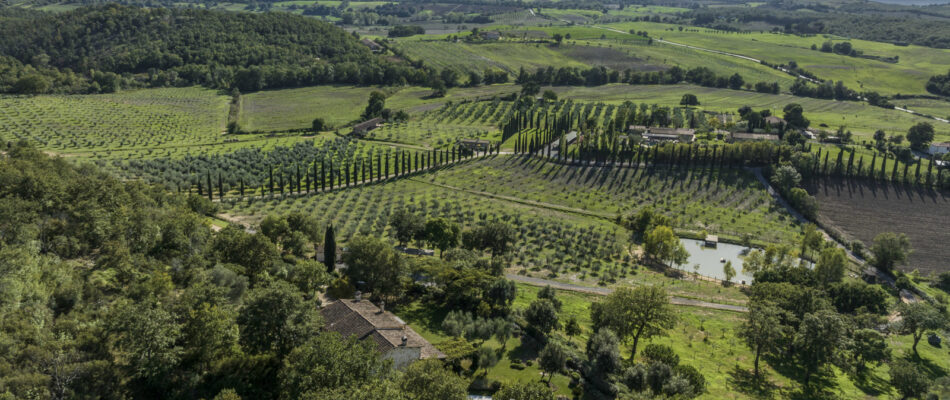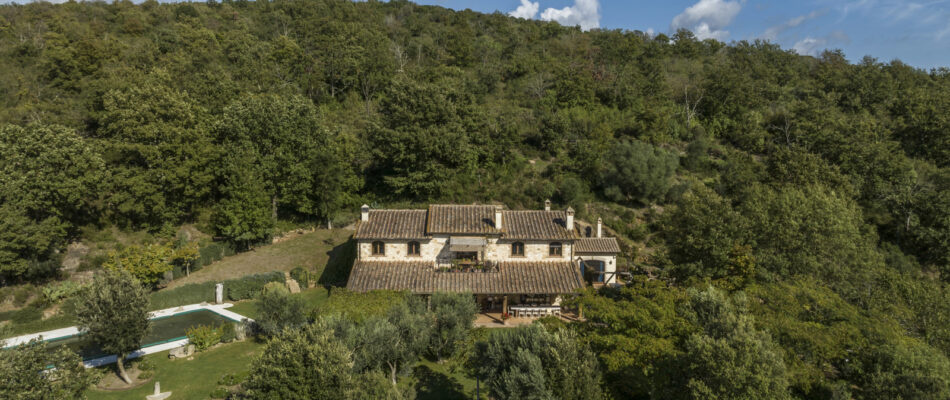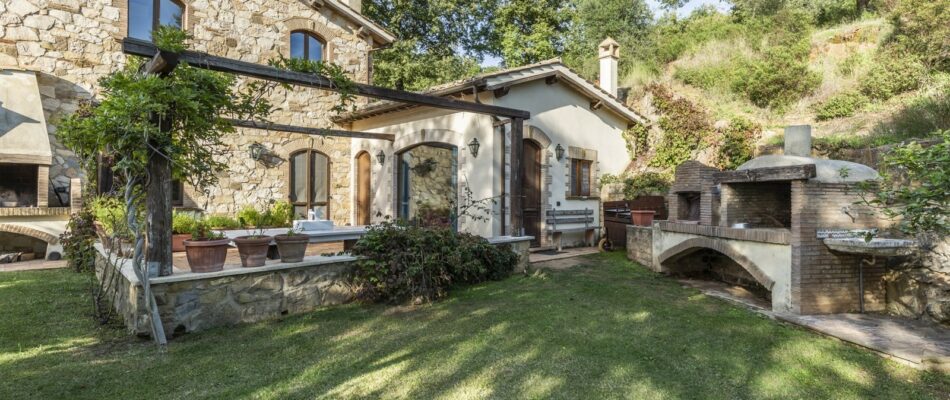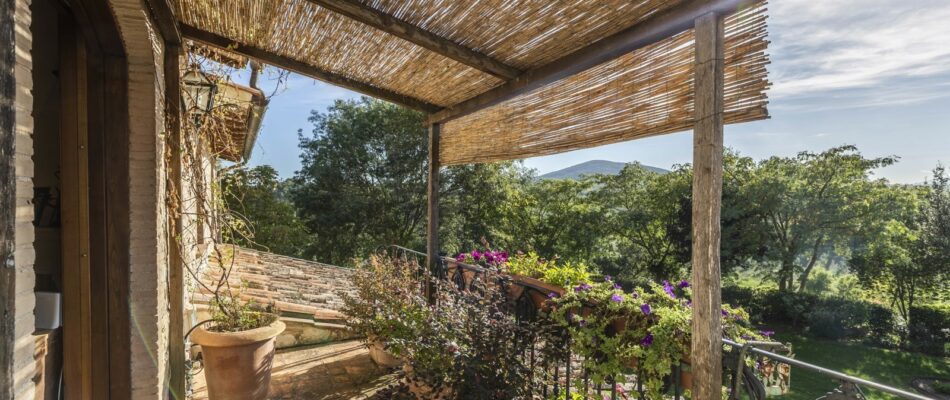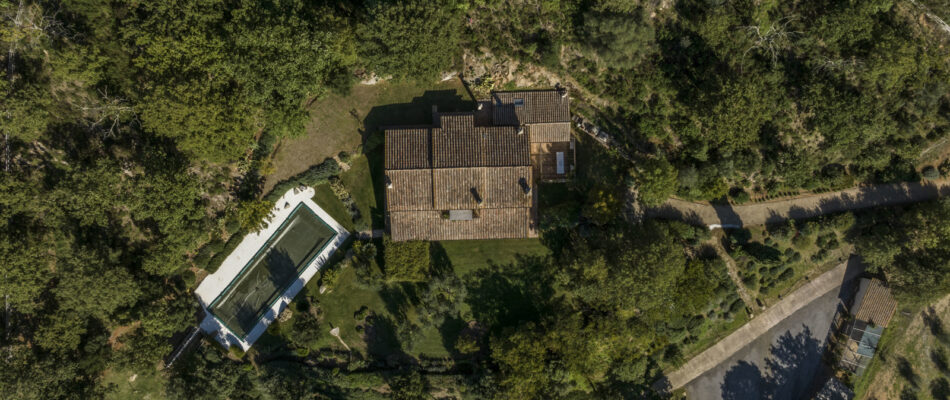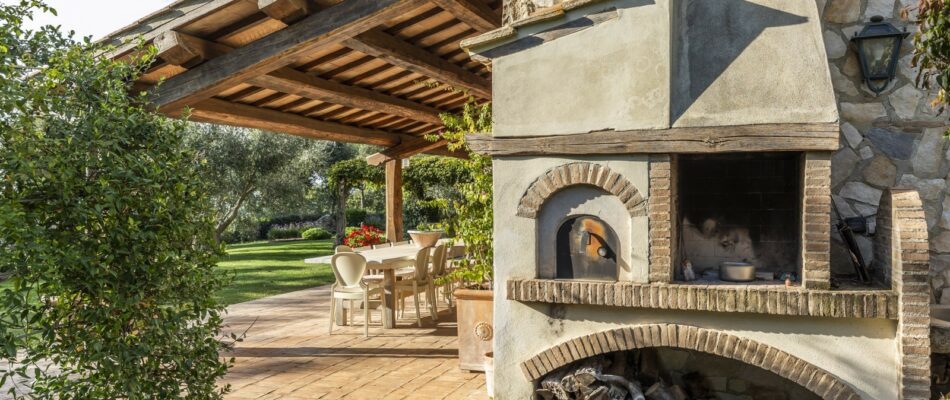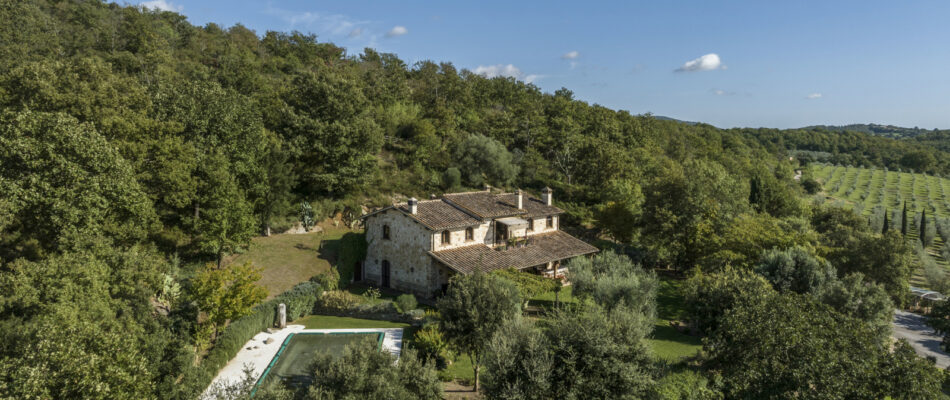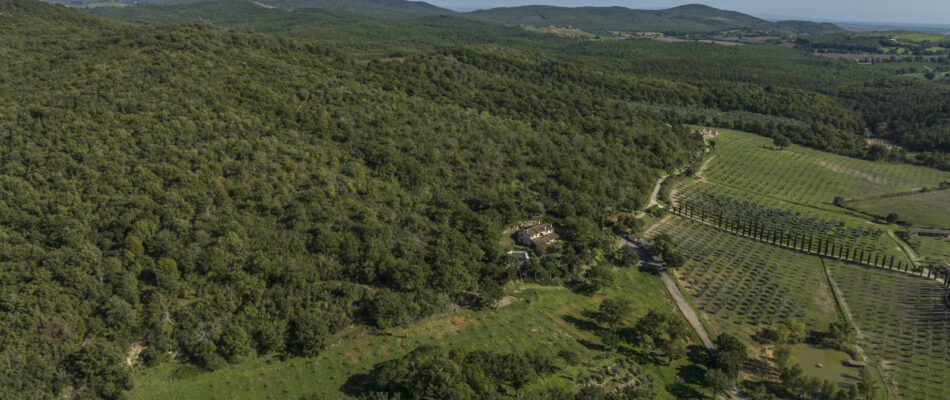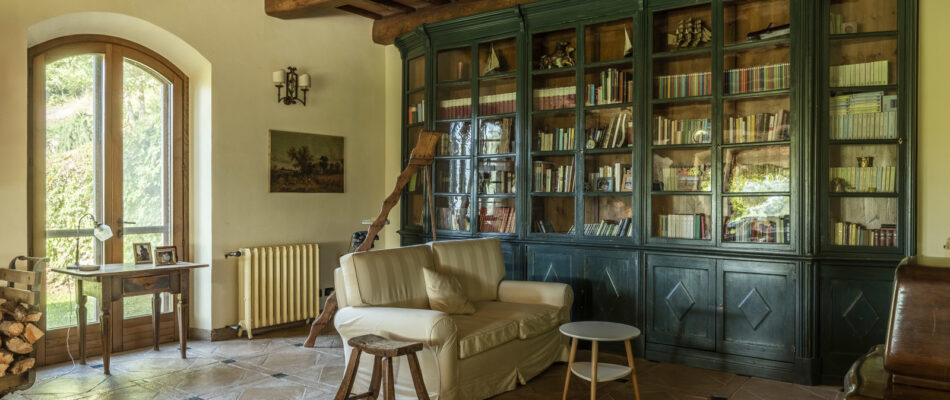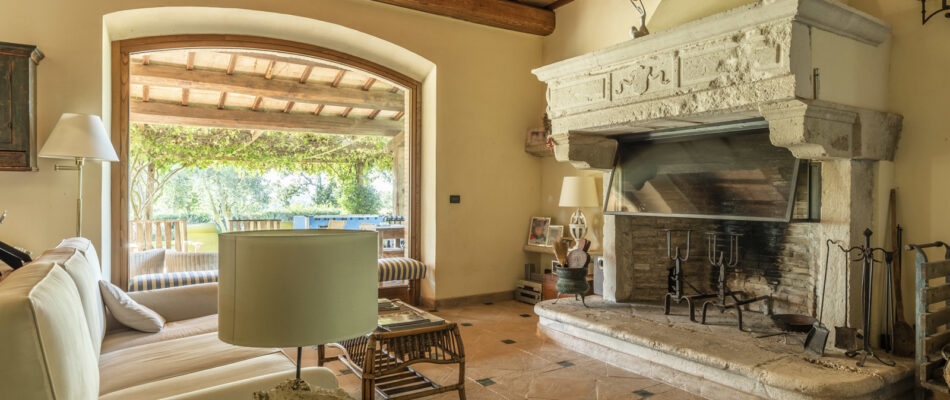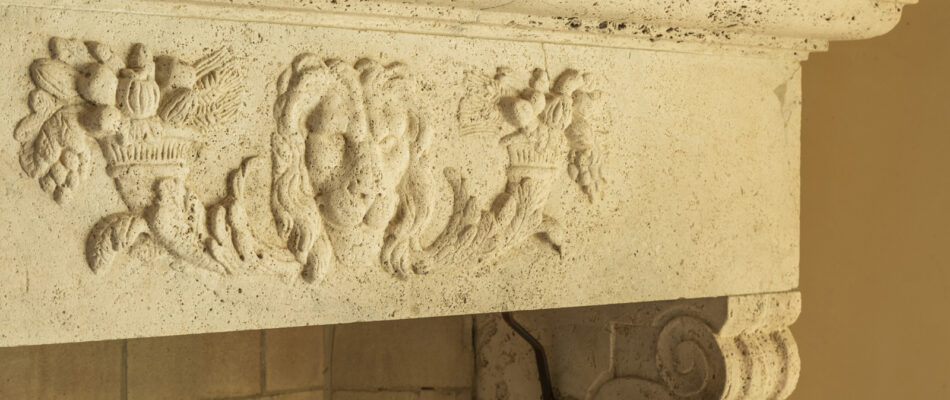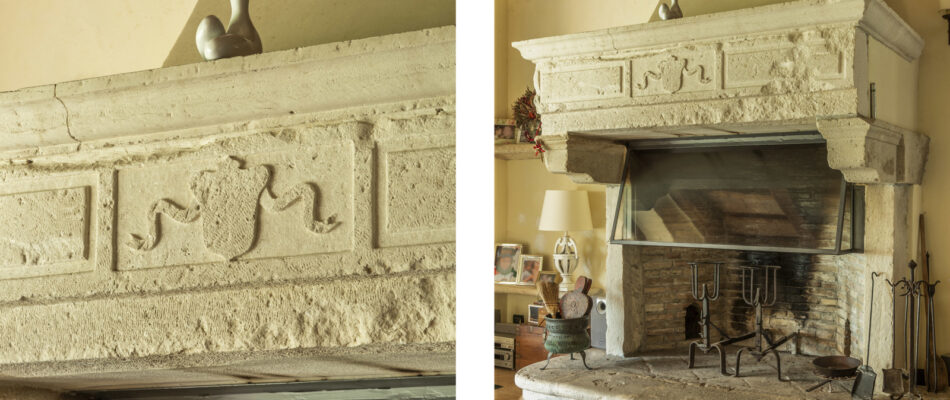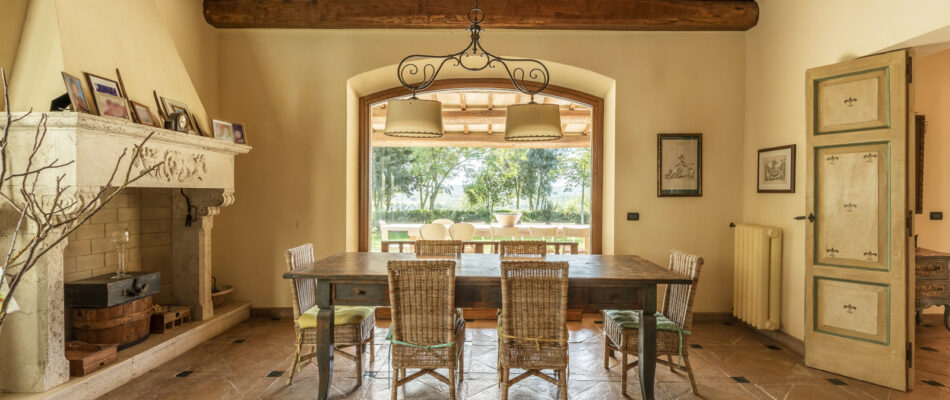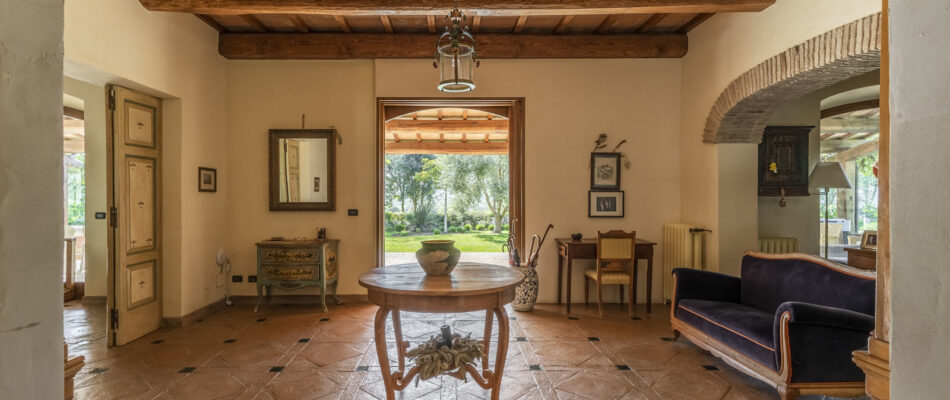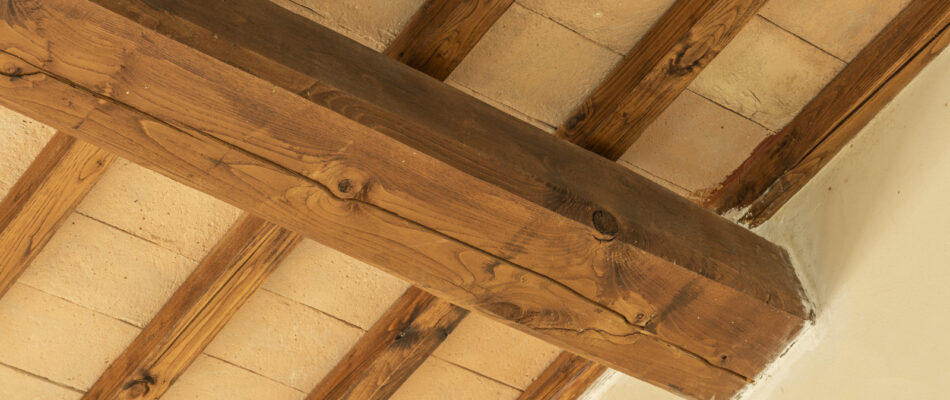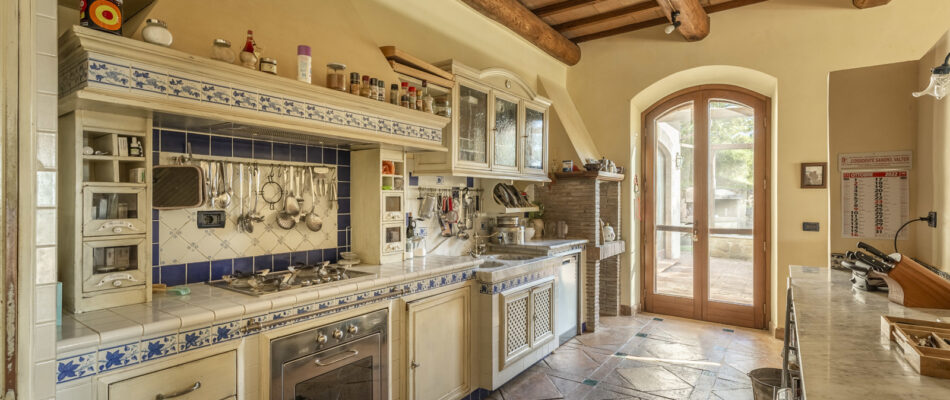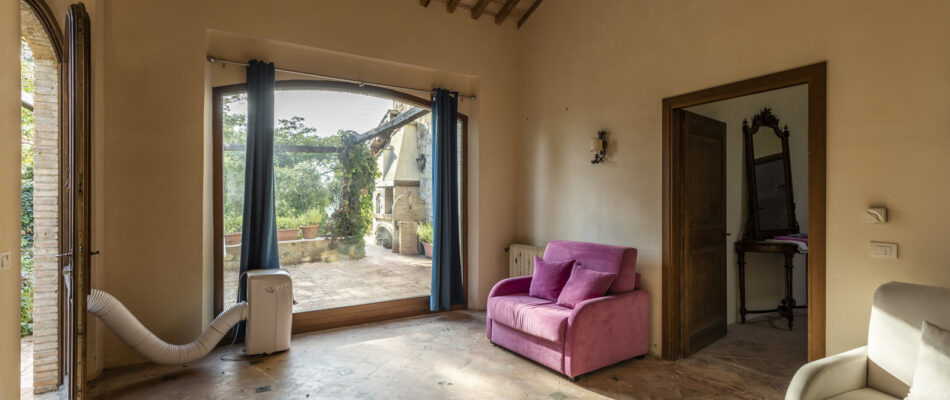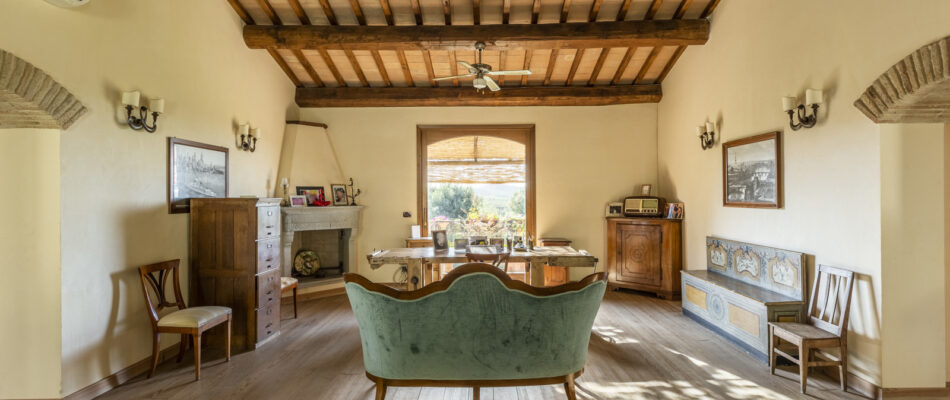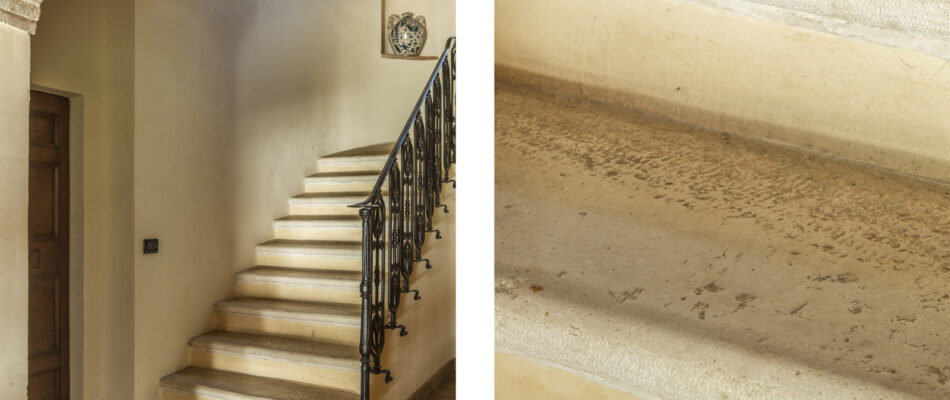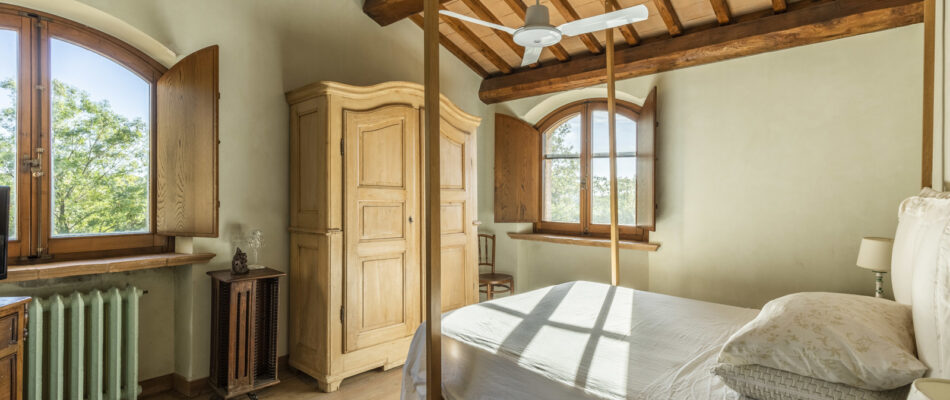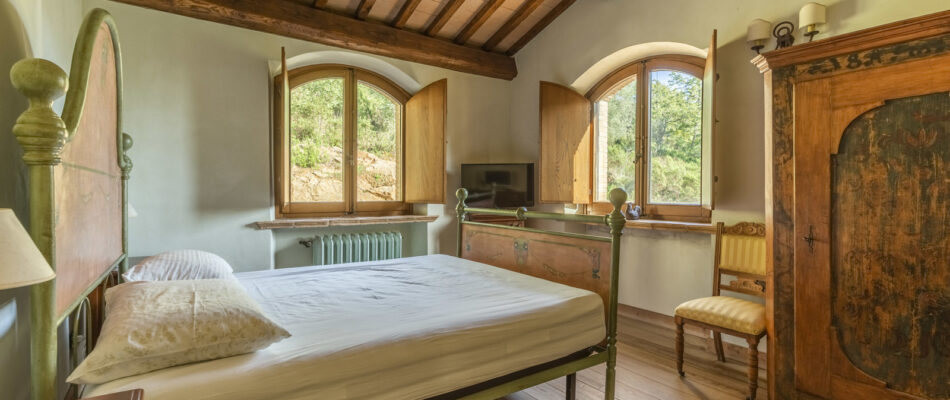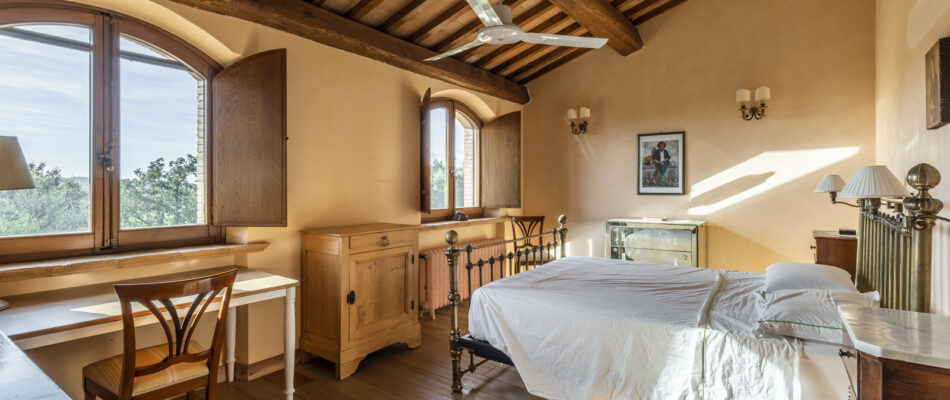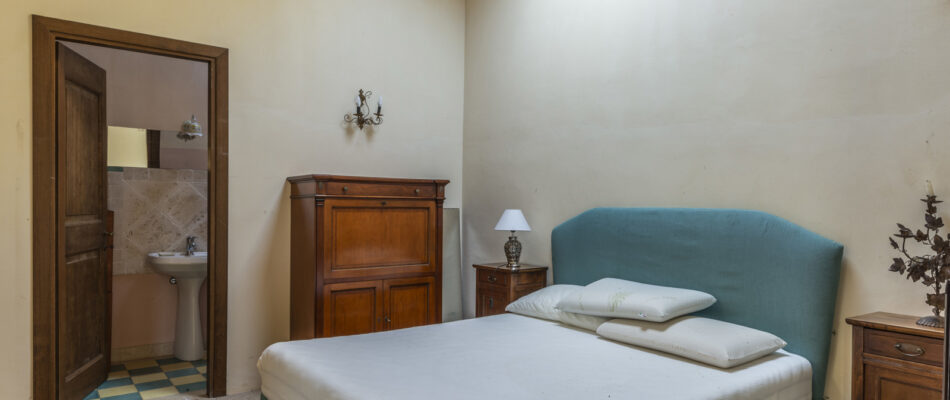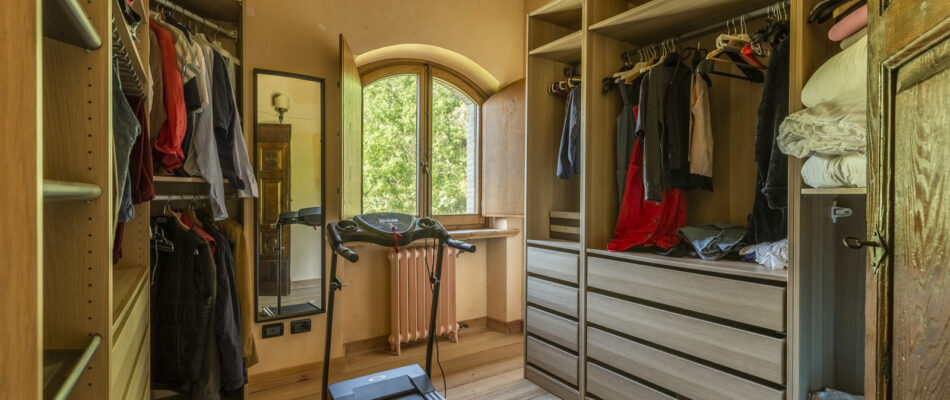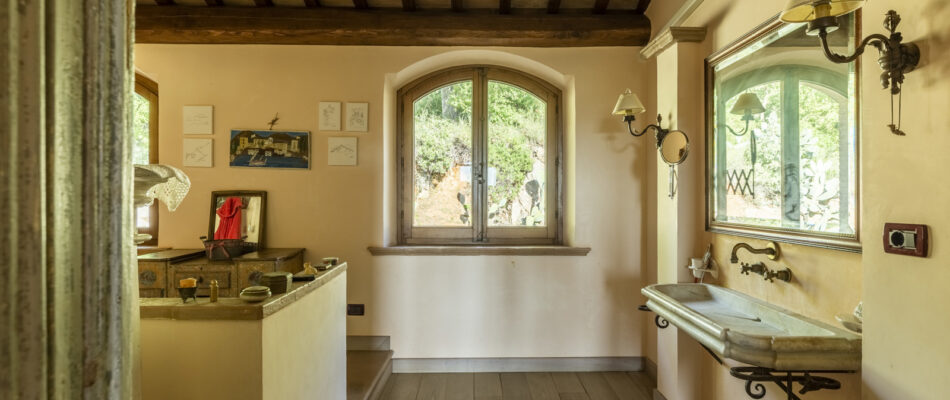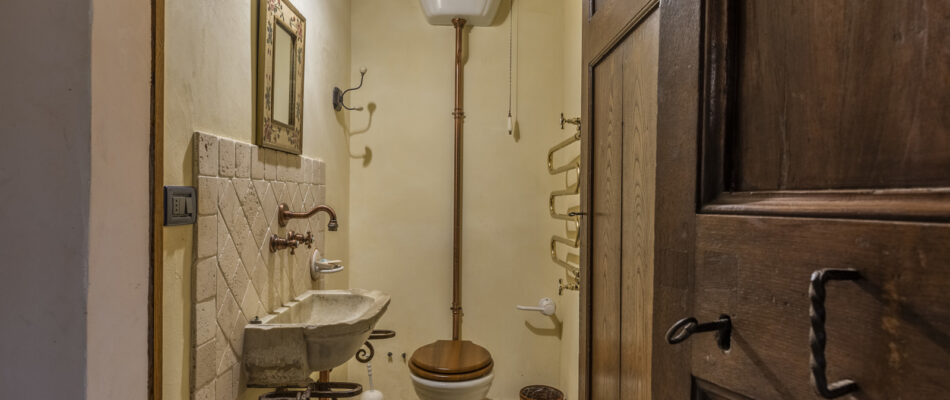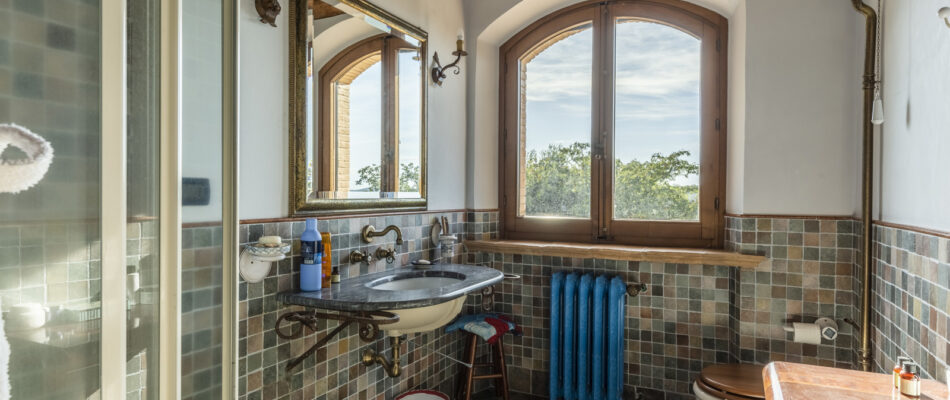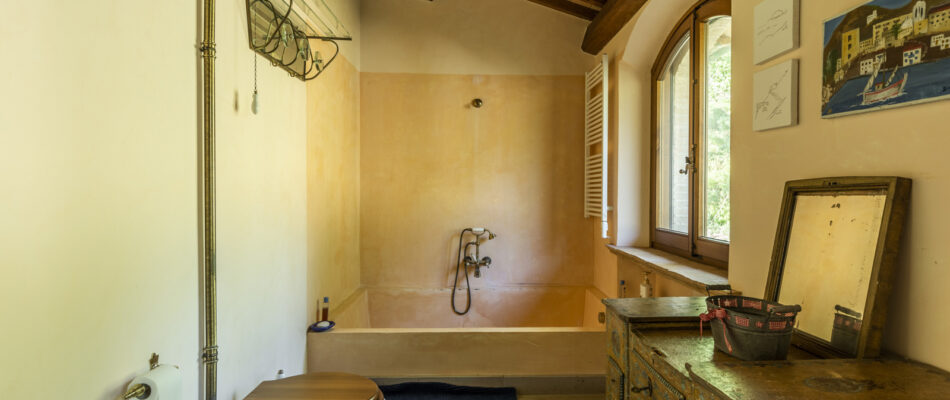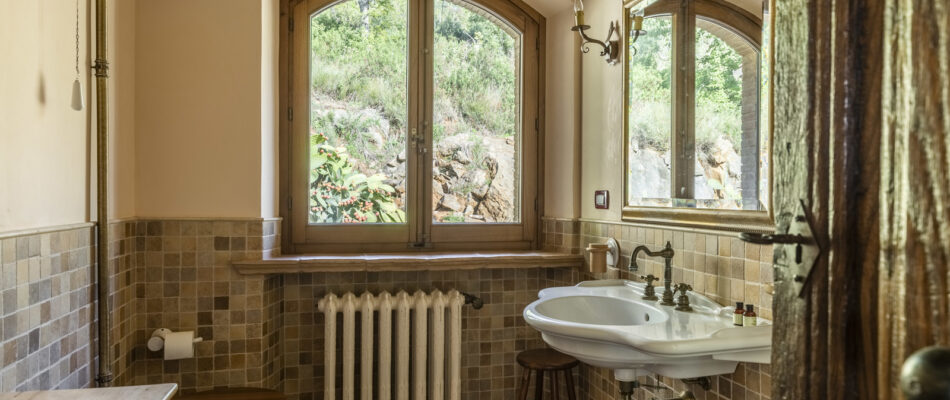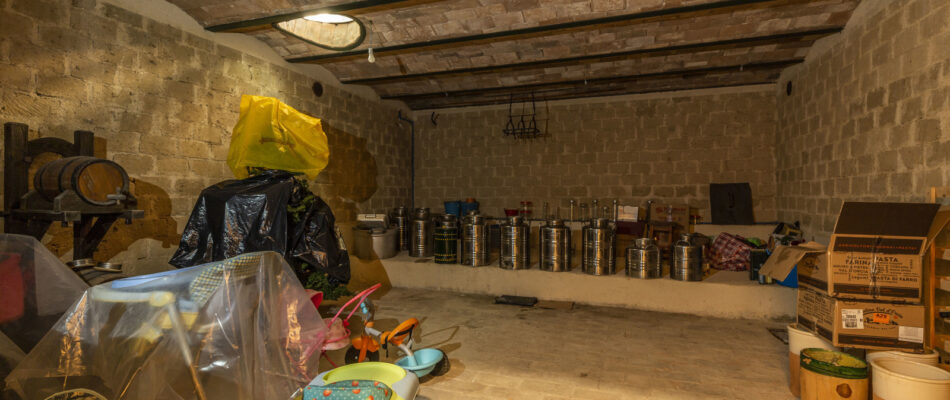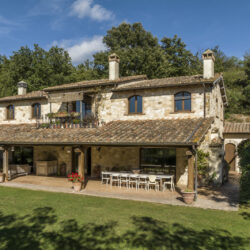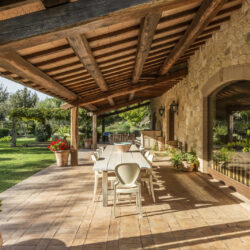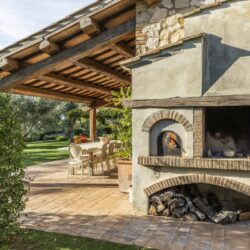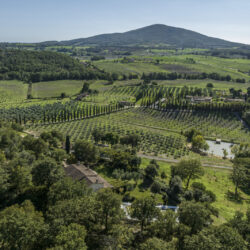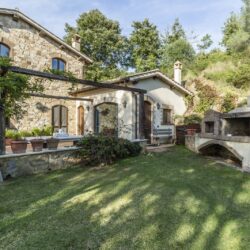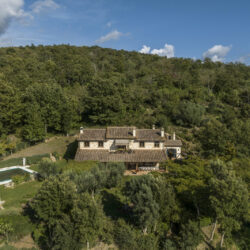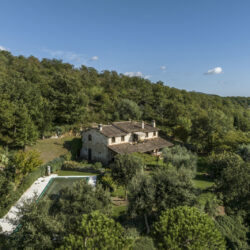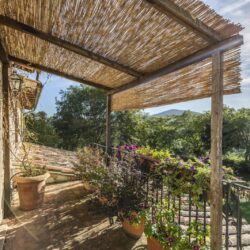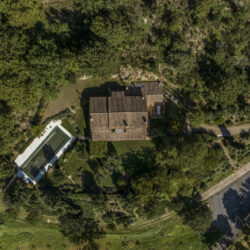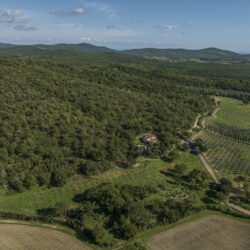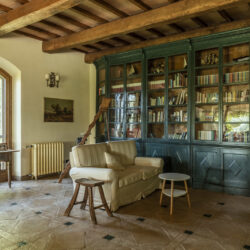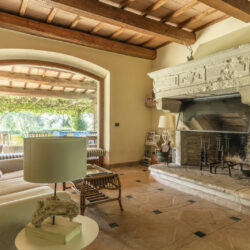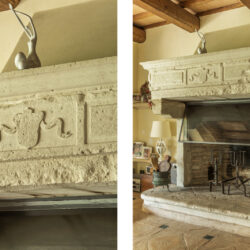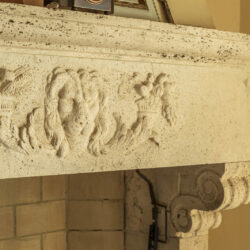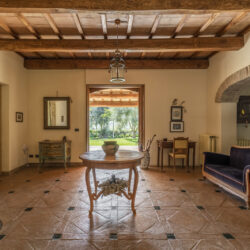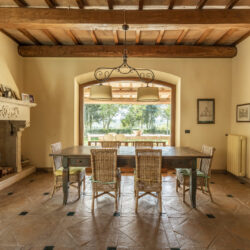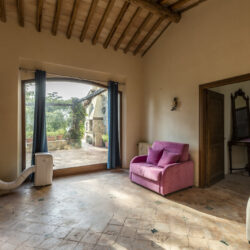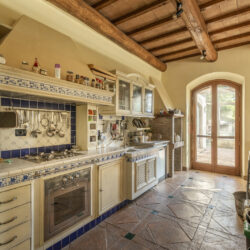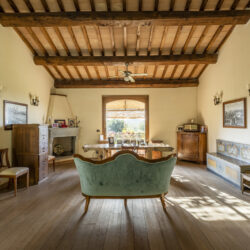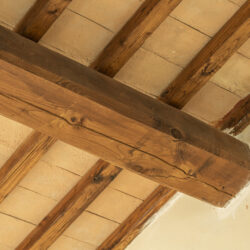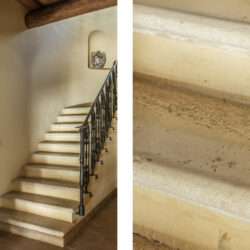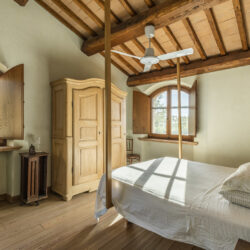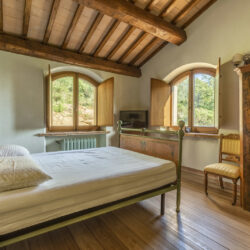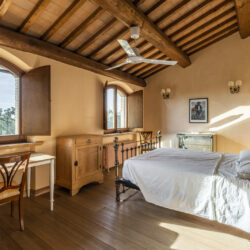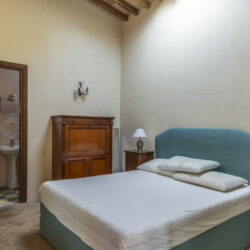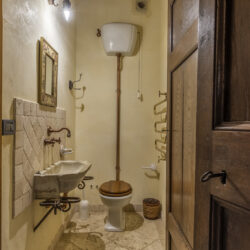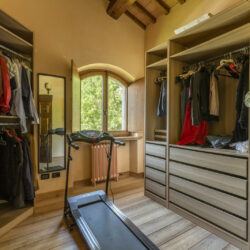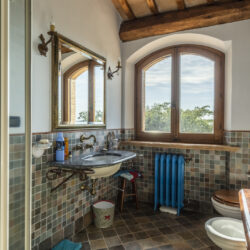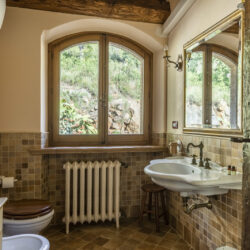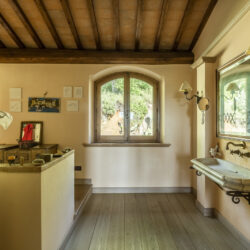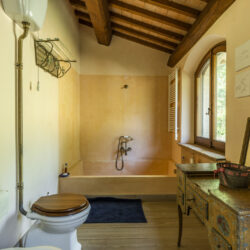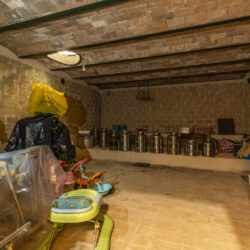ITALY, TUSCANY, GROSSETO, CAPALBIO
Villa of about 500 sqm with outbuilding and land of 7 ha with panoramic views in Capalbio near the Tuscan coast.
DESCRIPTION
From the main road, through a gate, driving along a white road of about 300m, we reach a magnificent stone villa.
Entering the main door of the villa we find a large entrance hall with two arches.
The left arch leads to a living room with a large antique fireplace while the right arch leads into the kitchen with dining area, also with a large antique fireplace.
The entrance also leads to a guest bathroom.
The entire living area overlooks a porch of about 80 sqm where there is a living area and a dining area.
A staircase with stone steps from the 1700s leads to the second floor consisting of a study with fireplace, three double bedrooms and three bathrooms.
The property is completed by a cellar in the basement and an outbuilding attached to the main villa consisting of a living room, a double bedroom and a bathroom.
CONDITION AND FINISHES
Finely renovated stone property with all systems connected and working.
EXTERIOR SPACES
The property consists of a private garden of 3,500 sqm with 18 × 5 m swimming pool and relaxation area.
In addition, there are 7 ha of land where we find 200 olive trees and the remaining hectares in forest.
It is possible to park the car in a covered parking area in front of the villa.
POTENTIALITY OF USE
The property lends itself perfectly to be used as a first home to live both summer and winter in a typical Tuscan farmhouse or as a second home to live the vacations in the utmost privacy and tranquility.
LOCATION
The property is located near the town of Capalbio in the province of Grosseto.
Capalbio is a village located in southern Tuscany and is surrounded by the typical Maremma scrubland.
The village in the medieval period was owned by the Aldobrandeschi family and later passed to the Counts Orsini and finally in 1416 was annexed to the Republic of Siena.
In Capalbio it is possible to spend a day at the Tarot Garden, an art park conceived by French-American artist Niki de Saint Phalle, populated with statues inspired by the figures of the major arcana of the tarot.
From Capalbio we can easily reach Porto Santo Stefano, Porto Ercole, Manciano, Montemerano and Saturnia.
